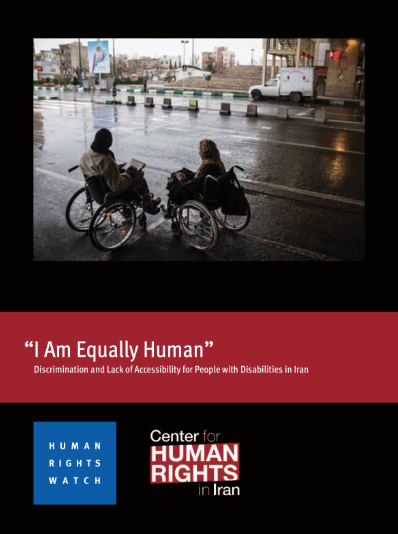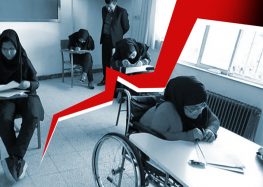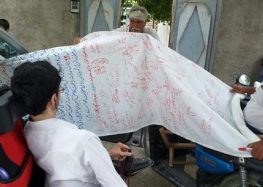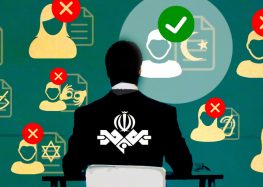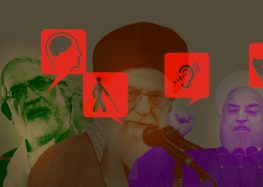Activists Condemn Rouhani Government’s Minimal Proposed Funding For Disability Rights in Iran
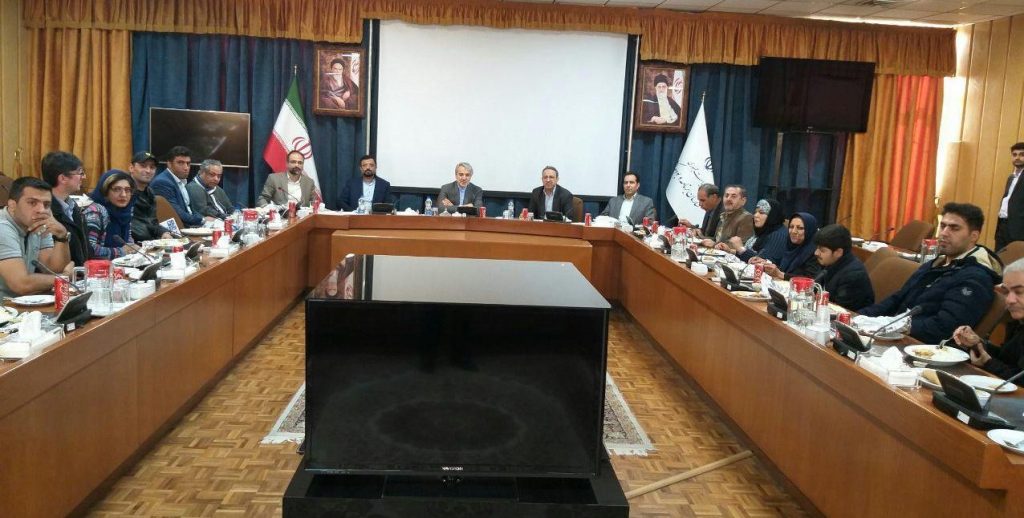
A December 2018 meeting between disability rights activist and the head of Iran’s Plan and Budget Organization in Tehran.
Advocates for the rights of people with disabilities in Iran have condemned the minimal budgetary allocation proposed by the government of President Hassan Rouhani to implement the country’s Law for the Protection of the Rights of Disabled Persons.
“The current proposed budget, if approved [by Parliament], would only be enough to maintain the status quo, more or less,” Pouya, a disability rights activist in Iran, told CHRI.
“The consequences of this bill and the economic impact on people with disabilities will be a wakeup call for the authorities and lawmakers to pay more serious attention to the demands of the community,” added Pouya, who spoke on the condition of anonymity for fear of reprisals by security forces for speaking to a foreign media outlet.
In response to calls by disability rights advocates for the Rouhani government to allocate a separate budget to implement the Law for the Protection of the Rights of Disabled Persons, Member of Parliament Homayoun Hashemi said on December 5, 2018, that the Plan and Budget Organization (PBO) had approved setting aside specified funding.
Hashemi, the former head of the SWO, added that the allocation would be debated in Parliament after President Rouhani submitted the draft budget bill on December 6. He did not indicate how much in state funds would be allocated.
That same day, Behrouz Morovvati, chairman of the Campaign for the Rights of Persons With Disabilities, an Iran-based disability rights advocacy group, told a state-funded media outlet that the allocated budget is 11 trillion rials (approximately $261 million USD)—a tenth of what the State Welfare Organization (SWO) had requested.
Morovvati had been informed of the amount by the head of the PBO.
“Obviously, this amount is not enough to carry out the law,” Morovvati told the Iranian Labor News Agency. “In a meeting we had with the head of the PBO, Mr. [Mohammad Bagher] Nobakht, it became clear to us that the law would not receive the needed resources.”
“We were told the reason is low oil revenues and the sanctions,” he added.
Before the government presented the budget bill to Parliament, disability rights groups reminded the Rouhani administration that according to Article 30 of the new law, which came into effect in Iran in April 2018, the government is required to set aside allocated funding for its implementation, separate from the SWO’s budget.
To make their voices heard, several people with disabilities and their supporters held gatherings in various cities, including in front of the PBO’s headquarters in Tehran.
In a statement issued December 1, the Center for Human Rights in Iran (CHRI) also urged the Rouhani government to fulfill its responsibility to implement the Law for the Protection of the Rights of Disabled Persons by specifically allocating funds to enforce it.
Allocating just one-tenth of the requested budget would seriously hamper the implementation process.
The Rouhani government’s decision to allocate a separate budget for the implementation of Iran’s disability rights law is a positive step but the proposed amount is not enough to support the needs of a considerable portion of people with disabilities in Iran who are struggling to make ends meet under the current economic crisis.
“Enforcing all the provisions of this law will require a lot more money,” Pouya, the disability rights activist, told CHRI.
“For instance… funds for nursing care were supposed to be paid for all the disabled in need, not just those with spinal injuries [as specified in the proposed budget],” he said. “That means extending nursing assistance coverage from about 24,000 people to more than 700,000 people. That needs a very large budget.”
“In addition, making public spaces and transportation vehicles disabled-friendly, carrying out training programs and paying tuition for students with disabilities would need a large budget in the current economic climate,” said Pouya, adding that the proposed amount wouldn’t be able to cover these and many other programs and services for people with disabilities in Iran.

